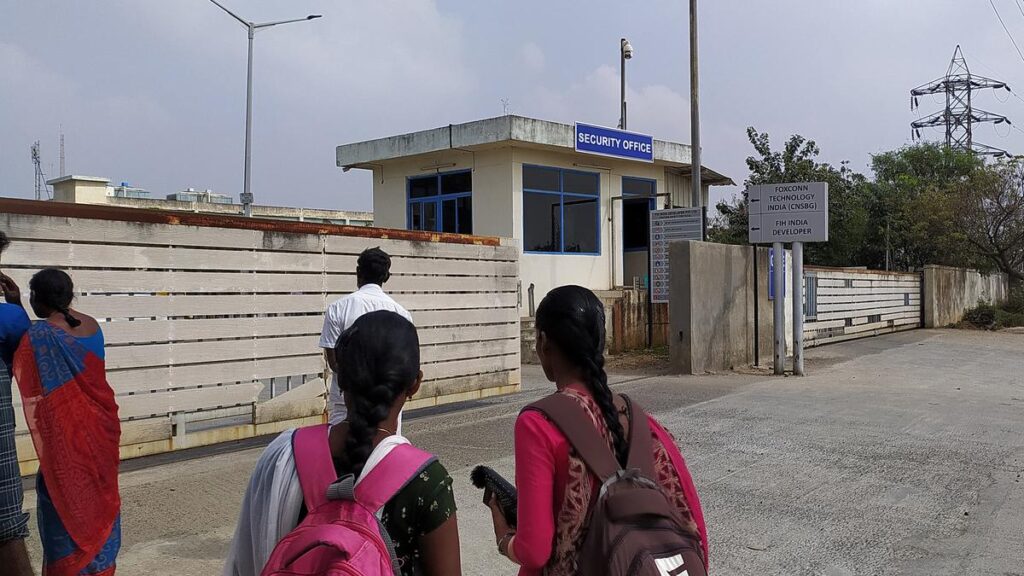Apple, Inc.’s existing and soon-to-be-opened infrastructure in India is sufficient to supply demand for iPhones in India and the United States, government sources said, adding that there was not much alarm in India over U.S. President Donald Trump’s remarks to Apple CEO Tim Cook that he didn’t “want you [Apple] building in India”.
“You can build in India if you want to take care of India,” Mr. Trump said in Qatar, describing a conversation he had with Mr. Cook, adding that Apple had already committed $500 billion in investments into U.S. manufacturing.
As far as the assembly of iPhones is concerned, demand for both the U.S. and India in the ongoing quarter can be met with capacity from India, and this is infrastructure that is not practical to shift to a high labour-cost country like the U.S., least of all in short order, an official said. The manufacturing commitments that Apple has already made for the U.S. are for chips and other components which are not being made in India, the official added.
An Apple spokesperson declined to comment. The company has assured the Indian government that existing plans will not be impacted by Mr. Trump’s remarks.
Apple is serving demand for its phones and accessories through the following units, both existing and being planned to open: the Foxconn assembly unit in Sriperumbudur, the Pegatron facility in Mahindra World City in Chengalpattu, the component manufacturing unit in Krishnagiri, and the new Foxconn facility in Tumkur.
Two of these units — in Tumkur and Krishnagiri — have had their construction completed, and production is likely to start soon. Further manufacturing commitments by the company in India beyond these facilities have not yet been made, an official said, adding that this was only likely to happen after there was more clarity on the bilateral trade agreement being negotiated between India and the U.S.
With global markets witnessing a series of announcements, counter announcements, retractions and course corrections by Washington in the last couple of months, Mr. Trump’s latest ‘diktat’ to Mr. Cook would also fizzle out soon, industry players anticipated.
“How can global corporates change their programmes based on political changes? They work on long-term strategies for diversification, to improve supply chain systems by increasing manufacturing footprint. And, Apple has been doing that in many countries, including in India,” remarked Indian Electronics and Semiconductor Association (IESA) [resident Ashok Chandak.
He said he did not anticipate a scenario where Apple would stop producing for exports from India. He, however, said it was not correct to speculate, “rather give it some time, especially when India was in advanced talks with the U.S. on trade agreements.”
“’Whatever happens should be in the interest of both the countries: India and the U.S.,’‘ Mr. Chandak added.
According to IESA, India’s electronics manufacturing sector is already a $150 billion industry and is expected to cross $500 billion by 2030.
B.V. Naidu, an industry (semiconductor, electronics and IT) veteran and managing partner, StartupXseed Ventures, a venture capital firm in Bengaluru, said corporate decisions and footprint expansions were fully-driven by market forces and U.S. President Trump’s suggestion would not be feasible for Apple.
“Making all iPhones for world markets in the U.S. will make these phones very expensive and unaffordable for most export markets. So, it is not viable for Apple to stop producing phones for exports in India or other cost-effective markets where labour is also available,” Mr. Naidu added.
S&P Global Market Intelligence had recently reported that Apple has plans to replace its iPhone sourcing for the U.S. market from mainland China to India by 2026, which may lead to an increase in exports and a greater role for India in global supply chains, despite potential challenges in scaling up production.
Apple’s Indian exports, predominantly to the United States, represented 81.9% of phones exported by the firm in the first quarter of calendar 2025, as per data shared by S&P Global Market Intelligence. In March, the export share increased to 97.6%, likely reflecting the firm looking to pre-empt higher tariffs, the financial intelligence and analytics firm said.
According to S&P Global, Apple’s move would enhance India’s reputation in global supply chains, particularly if a U.S.-India Bilateral Trade Agreement is secured by the third quarter of 2025, despite potential challenges like labour strikes.
Apple’s iPhone sales in the U.S. were 75.9 million units in 2024, with exports in March from India equivalent to 3.1 million units, suggesting a need to double shipments either through new capacity or redirecting shipments bound for the domestic market.
In any event, mainland China will remain an important source of phone components for India, having represented 71.3% of shipments in the first quarter of 2025, the firm reported.
Apple assembled $22 billion worth of iPhones in India in the 12 months through March, increasing production by nearly 60% over the previous year.
Published – May 15, 2025 07:39 pm IST

